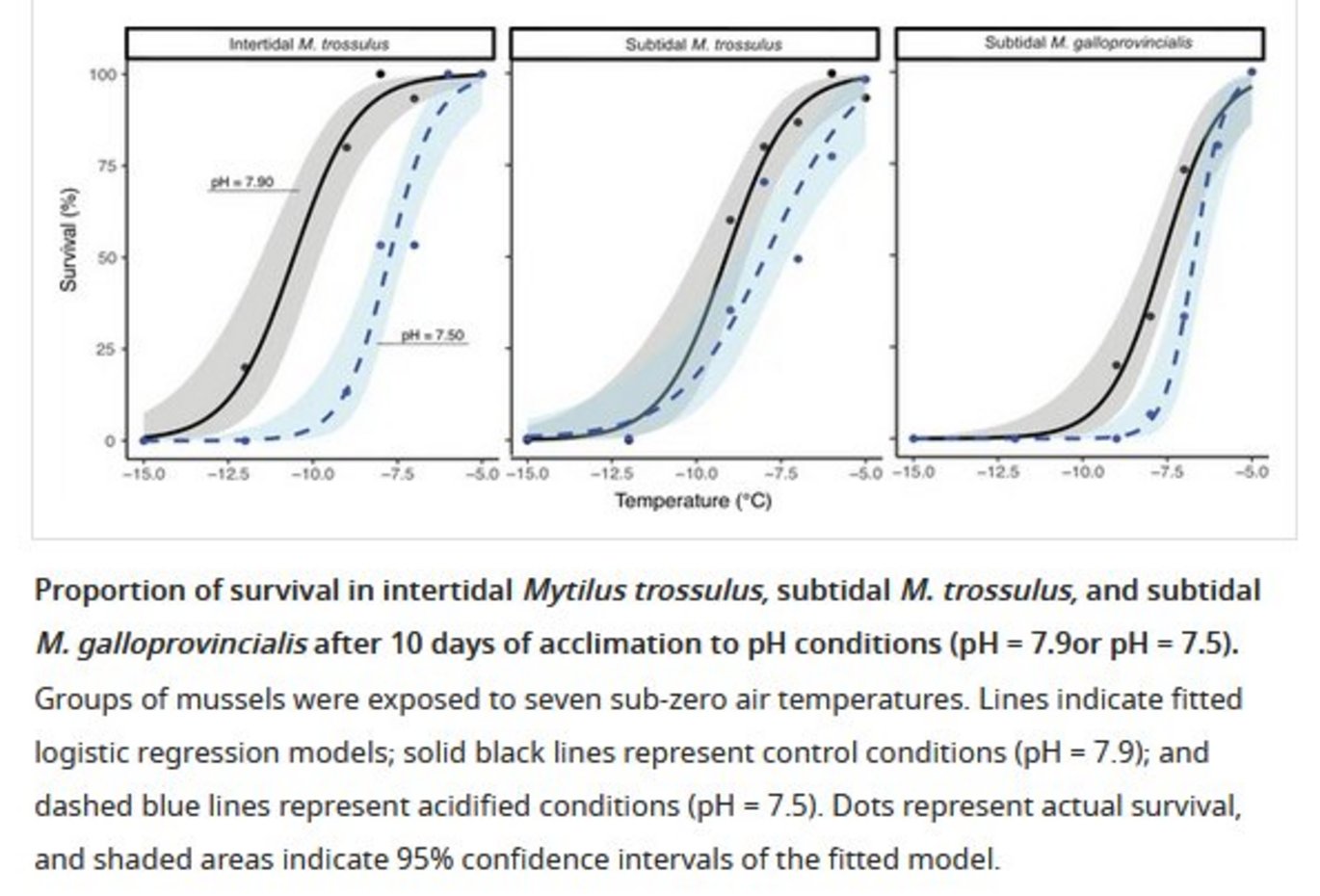Ocean acidification increases susceptibility to sub-zero air temperatures in ecosystem engineers and limits poleward range shifts
New publication by Thyrring, Jakob; Macleod, Colin D; Marshall, Katie E et al.

Abstract:
Ongoing climate change has caused rapidly increasing temperatures and an unprecedented decline in seawater pH, known as ocean acidification. Increasing temperatures are redistributing species toward higher and cooler latitudes that are most affected by ocean acidification. While the persistence of intertidal species in cold environments is related to their capacity to resist sub-zero air temperatures, studies have never considered the interacting impacts of ocean acidification and freeze stress on species survival and distribution. Here, a full-factorial experiment was used to study whether ocean acidification increases mortality in subtidal Mytilus trossulus and subtidal M. galloprovincialis, and intertidal M. trossulus following sub-zero air temperature exposure. We examined physiological processes behind variation in freeze tolerance using 1H NMR metabolomics, analyses of fatty acids, and amino acid composition. We show that low pH conditions (pH = 7.5) significantly decrease freeze tolerance in both intertidal and subtidal populations of Mytilus spp. Under current day pH conditions (pH = 7.9), intertidal M. trossulus was more freeze tolerant than subtidal M. trossulus and subtidal M. galloprovincialis. Conversely, under low pH conditions, subtidal M. trossulus was more freeze tolerant than the other mussel categories. Differences in the concentration of various metabolites (cryoprotectants) or in the composition of amino acids and fatty acids could not explain the decrease in survival. These results suggest that ocean acidification can offset the poleward range expansions facilitated by warming and that reduced freeze tolerance could result in a range contraction if temperatures become lethal at the equatorward edge.
